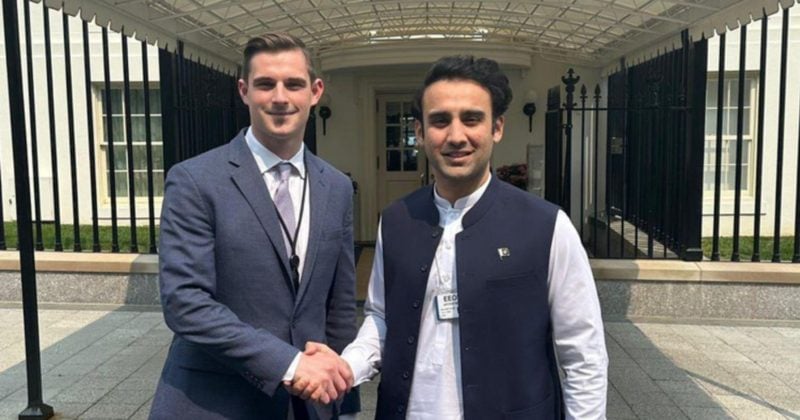
Trump’s top crypto advisor meets with Pakistan blockchain chief to discuss Bitcoin
Pakistan seeks to lead digital assets in the Global South amid energy concerns
Bo Hines, President Trump’s top crypto advisor, hosted Bilal Bin Saqib, CEO of the Pakistan Crypto Council (PCC), at the White House this week to discuss strategic cooperation on Bitcoin and digital assets, according to a Wednesday announcement on the PCC’s official X page.
“The meeting underscores Pakistan’s growing role in shaping digital asset policy in emerging markets and its commitment to fostering international partnerships that support crypto and blockchain adoption,” the council noted.
“I envision Pakistan to be a leader in the Global South for Digital Assets,” said Saqib in a statement reported by Dawn. “From launching our Strategic Bitcoin Reserve to unlocking the national infrastructure for crypto mining and AI data zones, Pakistan is building a real framework for digital asset adoption and economic modernization.”
In a joint statement, both US and Pakistani officials emphasized a mutual interest in advancing cooperation on crypto policy, blockchain innovation, and financial technology.
The meeting also touched on ways to build blockchain-driven innovation ecosystems aimed at empowering youth and expanding access to financial services. The parties reportedly explored strategies to boost economic inclusion through digital infrastructure and education.
Saqib also held a separate meeting with the White House Counsel’s Office, as per the report.
Last week, Saqib unveiled at the Bitcoin 2025 conference that Pakistan is establishing a government-led strategic Bitcoin reserve, a move that aligns closely with President Trump’s directive to develop a national Bitcoin reserve in the US.
The plan, according to Saqib, will be to have a Bitcoin wallet for long-term holding without selling the asset.
Pakistan also intends to allocate 2,000 megawatts to mine Bitcoin and power AI data centers, explore tokenization of illiquid assets, and enhance government efficiency using blockchain technology.
However, the International Monetary Fund (IMF) has warned against Pakistan’s Bitcoin mining and AI data center plans, citing concerns about energy shortages, fiscal challenges, and potential impacts on electricity tariffs.
The IMF, which was not consulted beforehand, has requested urgent clarification from Pakistan’s Finance Ministry.
Pakistan’s Bitcoin reserve plan may test its ties with the IMF. The organization has consistently warned developing countries against adopting crypto as a national reserve or legal tender.
The most high-profile case was El Salvador, whose Bitcoin policy caused tensions with the IMF.
El Salvador, the first country to adopt Bitcoin as legal tender, eventually had to agree with the IMF on a more conventional fiscal framework and enhanced monetary transparency measures to keep negotiations alive for a $1.4 billion loan.
While the government did not fully reverse its Bitcoin law, it substantially scaled back public promotion, removed Bitcoin’s mandatory legal tender status, and made Bitcoin acceptance voluntary for businesses.
Despite the deal with the IMF, El Salvador’s President Nayib Bukele maintained that the government did not abandon its Bitcoin accumulation strategy. The official public wallet continued to receive one Bitcoin per day, according to Arkham Intelligence data.
However, many in the crypto community have persistently questioned whether these coins were actually purchased or simply transferred from other government-controlled wallets, possibly using Bitcoin mined locally or acquired through undisclosed means.
